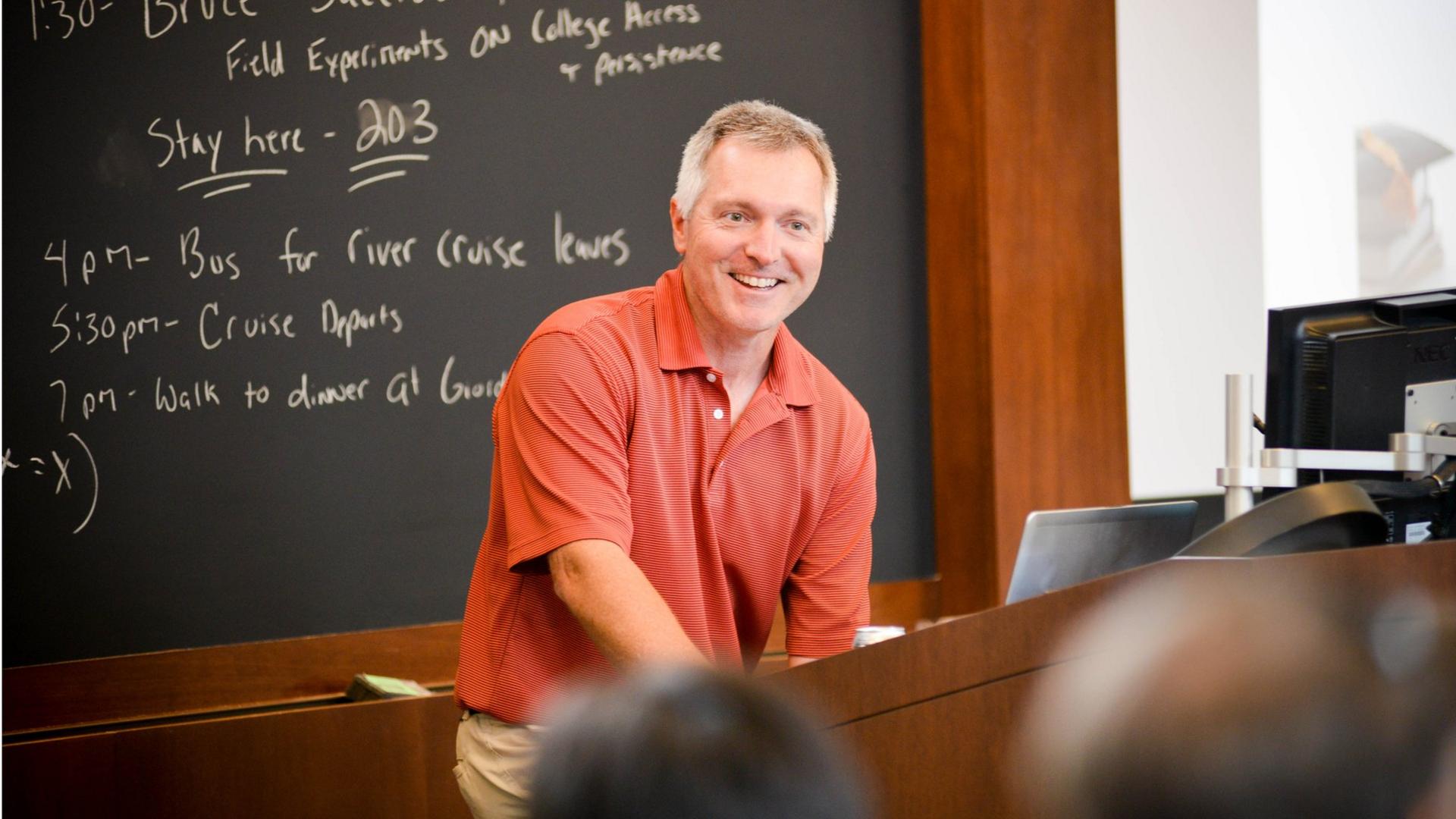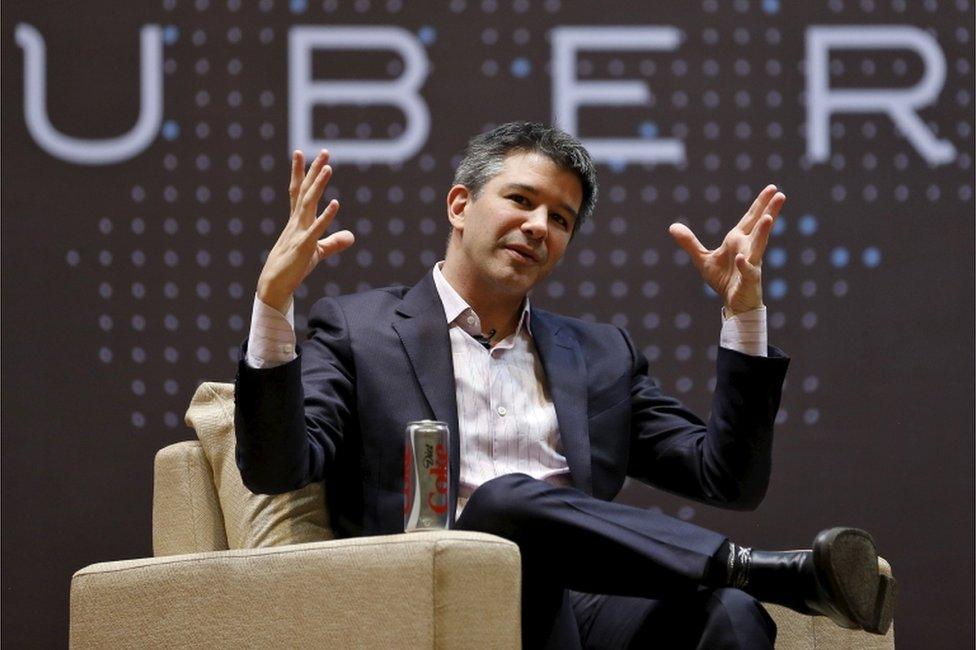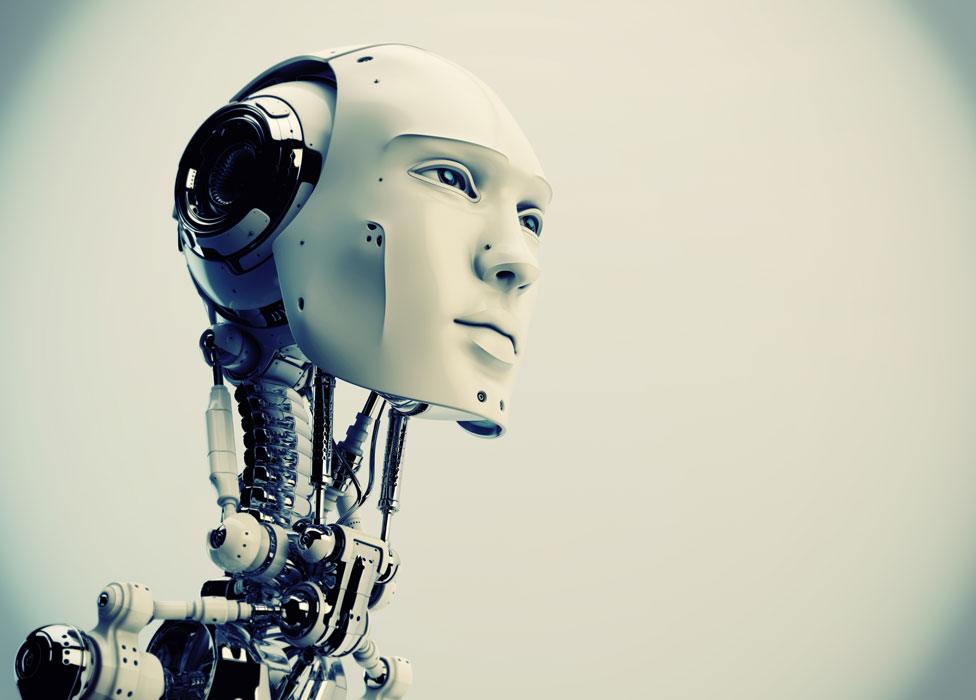The man who taught Uber how to say sorry
- Published

When the Uber he'd hired went to the wrong destination, one professor took his complaint to the very top - and then learned something valuable about the science of apologising.
In January 2017, John List was due to give a keynote speech at a prestigious gathering of economists. He picked up his phone and, using the Uber app, booked a cab to take him the 30-minute journey from his home. He looked up briefly, as the car sped along Lake Shore Drive, on the banks of Lake Michigan, and took in the view of the approaching city, with its fabulous skyline of skyscrapers. Then he settled back down to work on his talk.
About 20 minutes later he looked up again. Surely he must be nearly there now? "Oh no!!" he screamed. He was back where he'd begun. Something had gone wrong with the Uber app, which had instructed the driver to return to the professor's home. She had not wanted to disturb him, as he was so engrossed in his work.
List was understandably furious. But what made him more so, was that Uber never sent him an apology.
Not everyone who has a complaint to make with Uber has access to its chief executive, but John List did, and so he rang Travis Kalanick that evening. (This was not long before Kalanick was forced to step down as a result of shareholder pressure, following a series of controversies over company practices including its handling of sexual harassment allegations.)
After List had related the tale, and let off a bit of steam, Kalanick spoke. "What I want to know," he said, "is how Uber should apologise when this sort of cock-up occurs. What's the best way to keep Uber customers loyal, even when they've had a miserable experience?"
How to apologise is a question which every company is interested to know the answer. And John List was in a unique position to find out.

Not many people with John List's background become leading academics. He grew up in a working class family in Sun Prairie, north-east of the Wisconsin capital Madison. His Dad was a lorry driver and expected his son to enter the family business. John had other ideas. His dream was to become a professional golfer and he won a golf scholarship to college. There he discovered two things: first, he wasn't as good at golf as he had once thought, and second, he was fascinated by economics.
He's now on the economics faculty at one of America's top universities, the University of Chicago. But for a few years he's also been moonlighting, because Uber approached him to be their chief economist, and after he moved on from Uber, he joined another car-riding app, Lyft, where he holds the same position.

Travis Kalanick had to make a series of apologies himself, before resigning in 2017
No doubt the job is generously remunerated, but for John List it has another appeal; for data geeks, car apps are like gold mines - in the US alone, before the pandemic, there were two million Uber drivers, making tens of millions of trips each week. John List has spent his career studying economic behaviour in the real world, so working with Uber "was a dream come true". With this cornucopia of information, he could analyse all sorts of consumer preferences: what kinds of cars people like, how far they typically travelled, and at what times, how they responded to a change in the price of fares. He could also learn the best way to apologise.
His first step was to look at what happened to Uber users after they had had a bad ride - one that had taken much longer than the app had initially predicted. The app might predict, for example, that a journey would take nine minutes, and it would end up taking 23 minutes. By crunching the numbers, he and his collaborators discovered that riders who'd experienced such a bad ride would spend up to 10% less on Uber in the future. That represented a significant loss of earnings for the car app.
The next move was to come up with a variety of apologies, and to randomly try them out on those who'd experienced a bad trip.

Find out more
Listen to John List in Ubernomics, an episode of The Big Idea, on the BBC World Service

It turns out there's a sort of science of sorry. Social scientists - and psychologists in particular - have studied what kinds of apologies work. But John List had a big advantage; he could actually measure the impact.
He calls one type of sorry, the "basic apology" - "We note that your trip took longer than we predicted and we sincerely apologise." A more sophisticated apology involves an admission that the company messed up. Another type of apology involves a commitment - "We will try to ensure that this will not happen again."
On Uber's behalf, John List tried them all. What's more, with some of these apologies Uber offered a $5 discount off the next trip. In the experiment there was also a group of Uber customers who received no apology at all.
The result was surprising. On their own, apologies in whatever form proved ineffective. But an apology coupled with the $5 coupon kept many people loyal. "So, we end up bringing back millions of dollars by assuaging consumers with an apology and a coupon."
What consumers want, it turns out, is for a company to demonstrate its remorse by taking a material financial hit. But looking deeper into the stats, List realised that even this device ceased to work if there was a second or third bad trip. Indeed, a second or third apology only seemed to alienate customers further.
These are invaluable insights for Uber, and for other businesses too.

Many economists sit at their desks and make predictions about economic activity based on their models. What makes John List a little unusual for an economist is that he likes to test theories out in the real world. He's conducted experiments from Tanzania, to New Zealand, China to Bangladesh.
The vast digital data sets held by Uber and other car apps have enabled him to identify certain quirks in human behaviour that armchair economists might not have uncovered. For example, when you book an Uber you never know whether you'll get a male or female driver, so you might expect male and female drivers to earn the same. But in fact, male drivers earn about 7% more per hour than their female counterparts. Shocked by this disparity, List set about trying to find out the reason for it.
He uncovered several explanations. One is that women tend to have more childcare responsibilities, so there are fewer female drivers available at lucrative times, such as morning and afternoon rush hour. But by far the most important factor turns out to be speed: Uber-driving men drive on average about 2.5% faster than Uber-driving women, so they give more rides per hour.

Male drivers get smaller tips (even when they're awake)
That's not the only gender gap. Because he thought it would make Uber drivers happier, List persuaded the Uber board to add a tipping function - bringing Uber in line with other car apps. He then studied tipping behaviour. For every $4 women give as a tip, it transpired, men give around $5. What's more, women drivers receive more tips than male drivers - except when those women drivers are 65 years old or older. I think we can take this as further evidence of male shallowness.
The study of economic behaviour through car app data has been called Ubernomics - though John List's box of data toys is now delivered to him by Lyft, not Uber - and he continues to produce a stream of fascinating results. Analysing the behaviour of Lyft users, he's recently computed the power of what he calls "left-digit bias". Cutting the price of a journey from $15 to $14.99 has roughly the same impact on consumer demand as reducing it from $15.99 to $15.
Some of the discoveries in Ubernomics are unsurprising. Consumers care about price: the lower the cost, the more likely we are to book a cab. But the analysis of how we use car apps is also revealing some of the biases and idiosyncrasies of human economic behaviour.
By the way, if you ever decide to become an Uber driver, and think that being nice to the customer will have a significant impact on your income, there is some bad news. I'm afraid it won't. Even when customers rate one driver 10% higher than another for niceness, John List says, they both receive the same tip.
You may also be interested in:

We are not used to the idea of machines making ethical decisions, but the day when they will routinely do this - by themselves - is fast approaching. So how, asks the BBC's David Edmonds, will we teach them to do the right thing?